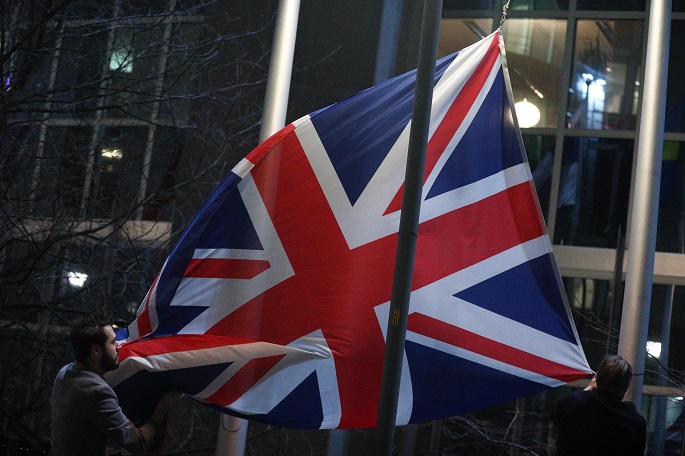UK to deny visas to low-skilled workers in post-Brexit immigration plan
Published : 19 Feb 2020, 23:17
Britain will not grant visas to low-skilled workers under its newly unveiled immigration scheme after Brexit, the Home Office said on Wednesday.
The immigration scheme, which takes effect from Jan. 1, 2021, is expected to end free movement, reassert control of the British borders and restore public trust.
It will assign points for specific skills, qualifications, salaries or professions and visas will only be awarded to those who gain enough points.
Overall levels of migration will be reduced, with tighter security and a better experience for those coming to the country.
British Home Secretary Priti Patel said that the new system was about bringing "the brightest and the best" to the UK.
"We're ending free movement, taking back control of our borders and delivering on the people's priorities by introducing a new UK points-based immigration system, which will bring overall migration numbers down," she said.
"We will attract the brightest and the best from around the globe, boosting the economy and our communities, and unleash this country's full potential," she added.
The plan is urging employers to "move away" from relying on "cheap labor" from Europe and invest in retaining staff and developing automation technology.
It said the points threshold will be carefully set to attract the talent the British need.
"Skilled workers will need to meet a number of relevant criteria, including specific skills and the ability to speak English, to be able to work in the UK," the document said. "All applicants will be required to have a job offer and, in line with the Migration Advisory Committee's recommendations, the minimum salary threshold will be set at 25,600 pounds."
It also stressed that European Union (EU) and non-EU citizens coming to Britain would be treated equally after UK-EU free movement ends at the end of this year.
But the opposition Labour Party said the "hostile environment" will make it hard to attract workers.
In line with the government's manifesto commitment, there will be no specific immigration route for low-skilled workers. An estimated 70 percent of the existing EU workforce would not meet the requirements of the skilled worker route, something the government hopes will help bring down the overall number of migrants in the future.
The student visa route will also be points-based and opened up to EU citizens, ensuring talent from around the globe will have access to the country's world-class universities.
Professor Alice Gast, president of Imperial College London, said "British science is global. The new post-study work and Global Talent visas will help us to attract the world's brightest students and researchers, wherever they come from."
"From the race to develop a coronavirus vaccine to clean energy, British science's international collaborations drive innovation and excellence," she added.
Those wishing to study in the country will need to demonstrate that they have an offer from an approved educational institution, that they can support themselves financially and that they speak English, according to the new plan.
The ruling Conservative Party has pledged to reduce overall migration to the country with an Australian-like points-based immigration system. One of the most important reasons behind the Brexit referendum results of leave is immigration.


